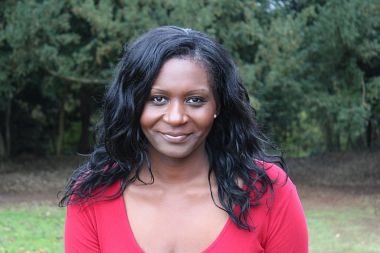Evangelicalism is not about homophobia or hating women, says new Evangelical Alliance director

The Evangelical Alliance has just appointed one of the youngest leaders in its nearly 170 years of existence. Chine Mbubaegbu, 30, is the EA's former head of media and communications and will now serve as director of communications. Of Nigerian heritage and a Cambridge theology graduate, she's also the first black woman to serve as an EA director.
She will take the reins at a time when the very word 'evangelical' is a challenge. For many people its connotations are profoundly negative, associated with a harsh judgmentalism that makes some Christians wary of identifying themselves with the label. One of her tasks will be to make the Alliance – and evangelicals more widely – synonymous with more than condemnation.
She tells Christian Today: "I do get frustrated by the caricatures of evangelicals in society as homophobic, judgmental women-haters and that evangelicalism is synonymous with televangelism. That's simply not what evangelicalism is supposed to be about.
"When the word evangelical is used in any other context, it simply means someone who is passionate about a certain thing and is keen that everyone knows about it. That's what I want evangelicals to be known for: being passionate followers of Christ, keen on seeing his good news impact every area of society – with our hearts turned towards those facing injustice or who are forgotten and excluded."
It's not just how evangelicals are seen by those outside the Church that worries her, however.
"What I'm more saddened by is the perception of evangelicals within many parts of the Church," she says. "There are so many Christians who are evangelical in everything but name and so many instances in which I see high profile Christians using the word 'evangelical' when what they mean is 'mean or judgmental Christian'.
"In some instances, they do have a point and we need to be aware of that and seek forgiveness for the times when we haven't been as loving as we should be. We also need to call each other out on this. In any case, I'm less worried about labels and more concerned with Christians being seen as the force for good we strive to be."
One of the obvious points at which what evangelical Christians want to say will clash with wider social values is in the area of sexual morality – and not just in the area of same-sex relationships. To a certain extent that's inevitable, she says: "I don't think we should be surprised when the Church clashes with wider social values, nor should it necessarily mean that we are wrong on those issues."
However, she adds: "I think in our communication we want be careful about the tone in which we say things and to steer clear where possible of things that detract from the good news – to point people towards God rather than away from Him. Often, that's so difficult and we do get things wrong.
"But increasingly there's a sense that we don't just want to say the things people will expect us to say. That's why we've done things in the past year including becoming Living Wage-accredited and backing campaigns such as No More Page Three and 28TooMany's petition against female genital mutilation."
One of the main challenges she sees facing the Churches at the moment is the 'missing generation' – those in their 20s and 30s – who are leaving the Church or who were never there in the first place.
"Often those who leave the Church cite irrelevance, hypocrisy and the perceived judgmental nature of churches as reasons why they'd rather not attend; although they still think Jesus is great. And so this is a major area of concern for the Alliance. It's one of the reasons we launched threads [a network for young adults] two years ago. It's been more successful than we would have hoped and is an attempt to show our generation that our faith has something to say about every area of our lives."
One of her challenges will be relating to the secular media. Does she subscribe to the view, common in Christian circles, that the media is biased against the Church? No, says Mbubaegbu – "as a former newspaper reporter myself, I know that a good Christian story can get into the press – particularly the regional press".
She does, however, highlight the problem of a lack of religious literacy within the media, where people of faith are under-represented, concluding that "more communication is needed, not less".
Churches generally, she believes, need to work harder at promoting themselves in the wider world.
"I think we have to be honest with ourselves about how we come across and work hard at ensuring our tone and image are right," she says. "In engaging with the media, the best thing to realise is that journalists are humans too. They need relationships, they love a good story, and want to do their jobs well. Send them the stories that you would be interested in yourself, take them out for coffee without asking for anything in return and remember they're more likely to run a story of yours if you've formed genuine relationships with them."











